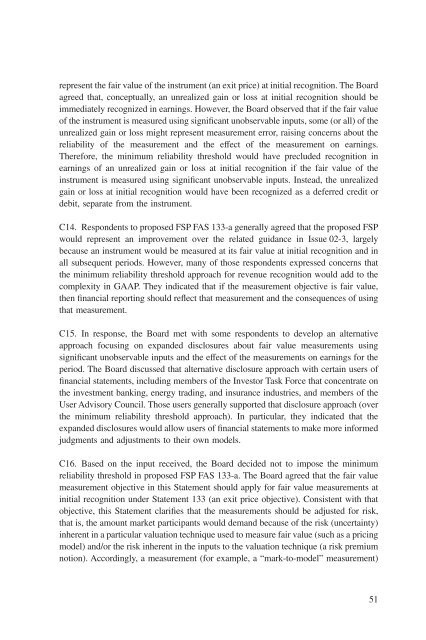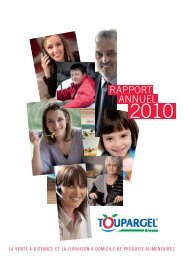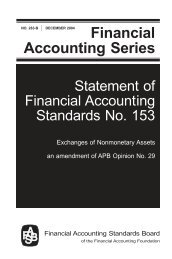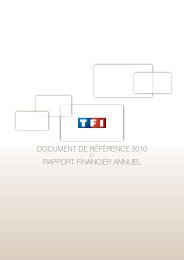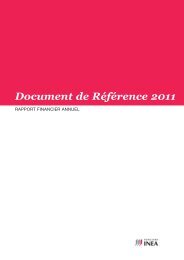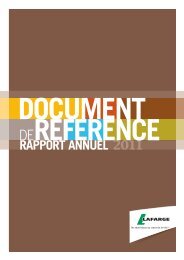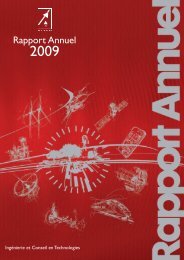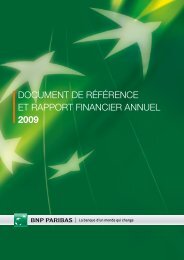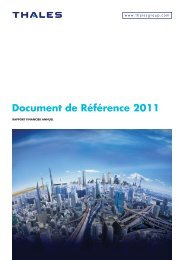Statement of Financial Accounting Standards No. 157 - Paper Audit ...
Statement of Financial Accounting Standards No. 157 - Paper Audit ...
Statement of Financial Accounting Standards No. 157 - Paper Audit ...
Create successful ePaper yourself
Turn your PDF publications into a flip-book with our unique Google optimized e-Paper software.
epresent the fair value <strong>of</strong> the instrument (an exit price) at initial recognition. The Board<br />
agreed that, conceptually, an unrealized gain or loss at initial recognition should be<br />
immediately recognized in earnings. However, the Board observed that if the fair value<br />
<strong>of</strong> the instrument is measured using significant unobservable inputs, some (or all) <strong>of</strong> the<br />
unrealized gain or loss might represent measurement error, raising concerns about the<br />
reliability <strong>of</strong> the measurement and the effect <strong>of</strong> the measurement on earnings.<br />
Therefore, the minimum reliability threshold would have precluded recognition in<br />
earnings <strong>of</strong> an unrealized gain or loss at initial recognition if the fair value <strong>of</strong> the<br />
instrument is measured using significant unobservable inputs. Instead, the unrealized<br />
gain or loss at initial recognition would have been recognized as a deferred credit or<br />
debit, separate from the instrument.<br />
C14. Respondents to proposed FSP FAS 133-a generally agreed that the proposed FSP<br />
would represent an improvement over the related guidance in Issue 02-3, largely<br />
because an instrument would be measured at its fair value at initial recognition and in<br />
all subsequent periods. However, many <strong>of</strong> those respondents expressed concerns that<br />
the minimum reliability threshold approach for revenue recognition would add to the<br />
complexity in GAAP. They indicated that if the measurement objective is fair value,<br />
then financial reporting should reflect that measurement and the consequences <strong>of</strong> using<br />
that measurement.<br />
C15. In response, the Board met with some respondents to develop an alternative<br />
approach focusing on expanded disclosures about fair value measurements using<br />
significant unobservable inputs and the effect <strong>of</strong> the measurements on earnings for the<br />
period. The Board discussed that alternative disclosure approach with certain users <strong>of</strong><br />
financial statements, including members <strong>of</strong> the Investor Task Force that concentrate on<br />
the investment banking, energy trading, and insurance industries, and members <strong>of</strong> the<br />
User Advisory Council. Those users generally supported that disclosure approach (over<br />
the minimum reliability threshold approach). In particular, they indicated that the<br />
expanded disclosures would allow users <strong>of</strong> financial statements to make more informed<br />
judgments and adjustments to their own models.<br />
C16. Based on the input received, the Board decided not to impose the minimum<br />
reliability threshold in proposed FSP FAS 133-a. The Board agreed that the fair value<br />
measurement objective in this <strong>Statement</strong> should apply for fair value measurements at<br />
initial recognition under <strong>Statement</strong> 133 (an exit price objective). Consistent with that<br />
objective, this <strong>Statement</strong> clarifies that the measurements should be adjusted for risk,<br />
that is, the amount market participants would demand because <strong>of</strong> the risk (uncertainty)<br />
inherent in a particular valuation technique used to measure fair value (such as a pricing<br />
model) and/or the risk inherent in the inputs to the valuation technique (a risk premium<br />
notion). Accordingly, a measurement (for example, a “mark-to-model” measurement)<br />
51


